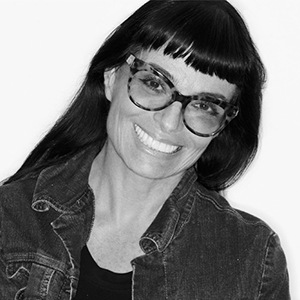Failure is a part of life. But fashion designer Norma Kamali admits she didn't always know that. "If my 21-year-old self had known failure was critically connected to life experience," she says, "I might have been less courageous with the choices I’ve made." Here, the style icon explains how she created success after what initially seemed like an enormous failure. You'll want to take notes from the Well+Good Council member.
Entrepreneurial types know very early in life they want to take on responsibility. Why? Because they enjoy it. I remember growing up in a neighborhood where kids would spend time playing, competing, and having fun. I took the lead to make up games that everyone would follow. Quite frankly, I didn’t have a clue about what to do, but I invented along the way. The experience was empowering, so I continued to take the lead in sports, with family responsibilities, in after-school jobs, and elsewhere.

All of it gave me the confidence to know I was capable of success. This remains a part of my identity, and it continues to give me the certainty to step into the unknown. When I started my company, I had no experience, but I did have a clear vision of what I wanted to do. (Again, I invented and learned along the way.) Even today, whenever I go out of my comfort zone, I do exactly the same thing: Invent, then learn.
The universe opens doors you never expected.
However, taking chances means that things can go wrong, take a turn, or fall flat. Sometimes your goal never comes to fruition. Other times, unexpected problems impact the survival of your endeavor. In every decade of my life, I have survived painful failure and loss—both personally and professionally. After numerous failures that seemed so unreasonable at the time, I eventually learned that failure could be replaced by an opportunity. The universe opens doors you never expected.
Here's an example of what I mean. My failures are notable since I'm the sole owner of my company; that means no partners and no money source to support failures. But it wasn't always that way. In 1967, my then-husband and I opened a basement store filled with vintage and clothing I brought back from London. The shop soon became a platform for my designs, and we developed a strong following. Success—for a while, anyway.

After 10 years, our marriage changed dramatically, and I knew it was time for me to leave. I had to walk away and abandon the things that had become my identity. When I left, I had $98 and a support system of folks who believed in me. I decided to start a label, calling it On My Own. I knew how to design, but running the business by myself was frightening. Prior to leaving, I was sure no one knew I existed. But thanks to people who believed in my talent and encouraged me, I realized that I could lead a company and design. I managed to reshape a failure into a success that I would never have imagined otherwise.
My failures have happened at different magnitudes.
My failures have happened at different magnitudes. For every 20 ideas I develop, maybe one might work. What I’ve learned to do is exercise my imagination often, and now I come up with ideas quite easily. (Most of the ideas are better, but implementing them is the challenge!) There are a few simple lessons I've learned along the way: Go with the flow. Don’t get stuck on having a rigid belief system in place on how you get to your goal. Work hard to turn negatives into positives, but also be wise enough to know when to move on.

{{post.sponsorText}}
Nothing is easy about failure. It can be extremely painful. In time, it becomes easier to look back at failure and assess the outcome, but while it's happening, so many emotions are in play. That's why the life of an entrepreneur takes courage. The opportunities are exciting, and the experience is constantly life-changing. I wouldn’t change a thing—unless, of course, I have to.
 As an entrepreneur and designer, Norma Kamali has always found inspiration for her fashion collections in wellness, beauty, and women’s empowerment. These anchors have fueled her creation of the Stop Objectification movement, which encourages women to celebrate their strength and their bodies.
As an entrepreneur and designer, Norma Kamali has always found inspiration for her fashion collections in wellness, beauty, and women’s empowerment. These anchors have fueled her creation of the Stop Objectification movement, which encourages women to celebrate their strength and their bodies.
What should Norma write about next? Send your questions and suggestions to experts@www.wellandgood.com.
Loading More Posts...